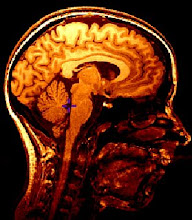The Beauty of Science
I'm currently reading a really fascinating book. It's called "What We Believe but Cannot Prove: Today's leading thinkers on Science in the age of certainty".The World Question Center is an annual feature of a website called Edge (www.edge.org): it involves contributors in the academic community providing their own personal answers to an annually posed question. The 2005 question sparked particularly interesting responses and ensuing buzz:
"Great minds can sometimes guess the truth before they have either the evidence or arguments for it. What do you believe is true even though you cannot prove it?"
The book brings together the best answers from some of the most prominent minds of our time. It is thoroughly interesting and quite thought provoking. Some of the selected responses are from specialists in the fields of physics, psychology, neuroscience, cosmology, theology, computing, biology, etc.
Richard Dawkins, an evolutionary biologist, provides one of my favourite responses:
"I believe that all intelligence, all creativity, and all design, anywhere in the universe, is the direct or indirect product of a cumulative process equivalent to what we here call Darwinian natural selection.
It follows that design comes late in the universe, after a period of Darwinian evolution. Design cannot precede evolution and therefore cannot underlie the universe".
Another really fascinating response is from Terrence Sejnowski, a computational neuroscientist. He states that:
"I believe that we are all looking in the wrong place for where long-term memories are stored. My hunch is that the substrate of old memories is located not inside the cell but outside, in the extracellular space."
That makes sense to me, as I personally study synaptic plasticity - i.e what is going on in the space between neurons to allow for learning and memory processes.
I'd strongly recommend this book to anyone with at least the slightest interest in science, and a curiosity about what today's most brilliant minds are scratching their heads about - what they have faith in (despite many of them being self-proclaimed atheists).
What also makes this collection unique is that it has opposing view points presented consecutively. Someone will talk about, for example, belief that consciousness is not possible without the presence of language, and the following contributor will state that consciousness is in fact possible without the necessity of human language.
It's very well rounded and doesn't leave you with a sense of bias, since it is essentially just people (scarily smart people) voicing their personal beliefs.


1 Comments:
Sounds like an interesting read. I'd recommend Bill Brysons 'A Short History of Nearly Everything' along similar lines. It's a lay persons guide to pretty much all scientific endeavour. Which suits me down to the ground, I tell ye.
Post a Comment
Subscribe to Post Comments [Atom]
<< Home